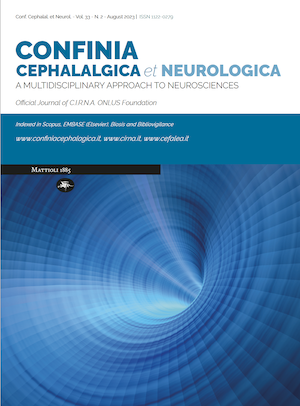Multidisciplinary research in neurosciences
Vol. 33 No. 2 (2023)
Improving the well-being of cancer hospitalized patients
SENTIR meditation program
Publisher's note
All claims expressed in this article are solely those of the authors and do not necessarily represent those of their affiliated organizations, or those of the publisher, the editors and the reviewers. Any product that may be evaluated in this article or claim that may be made by its manufacturer is not guaranteed or endorsed by the publisher.
All claims expressed in this article are solely those of the authors and do not necessarily represent those of their affiliated organizations, or those of the publisher, the editors and the reviewers. Any product that may be evaluated in this article or claim that may be made by its manufacturer is not guaranteed or endorsed by the publisher.
Received: 25 January 2023
Accepted: 17 May 2023
Accepted: 17 May 2023
308
Views
228
Downloads

